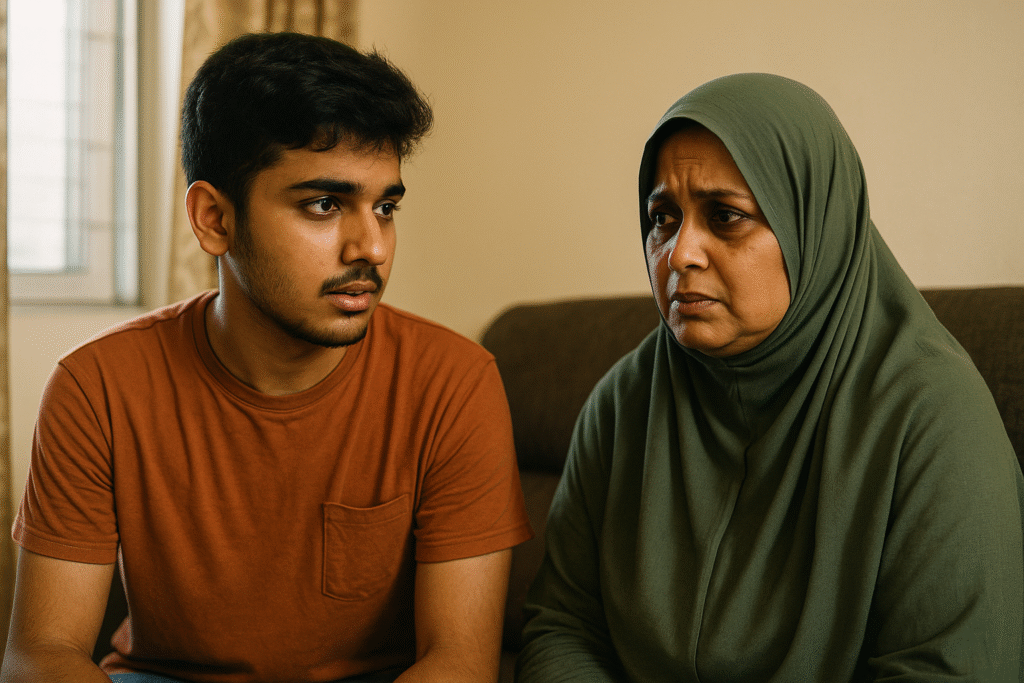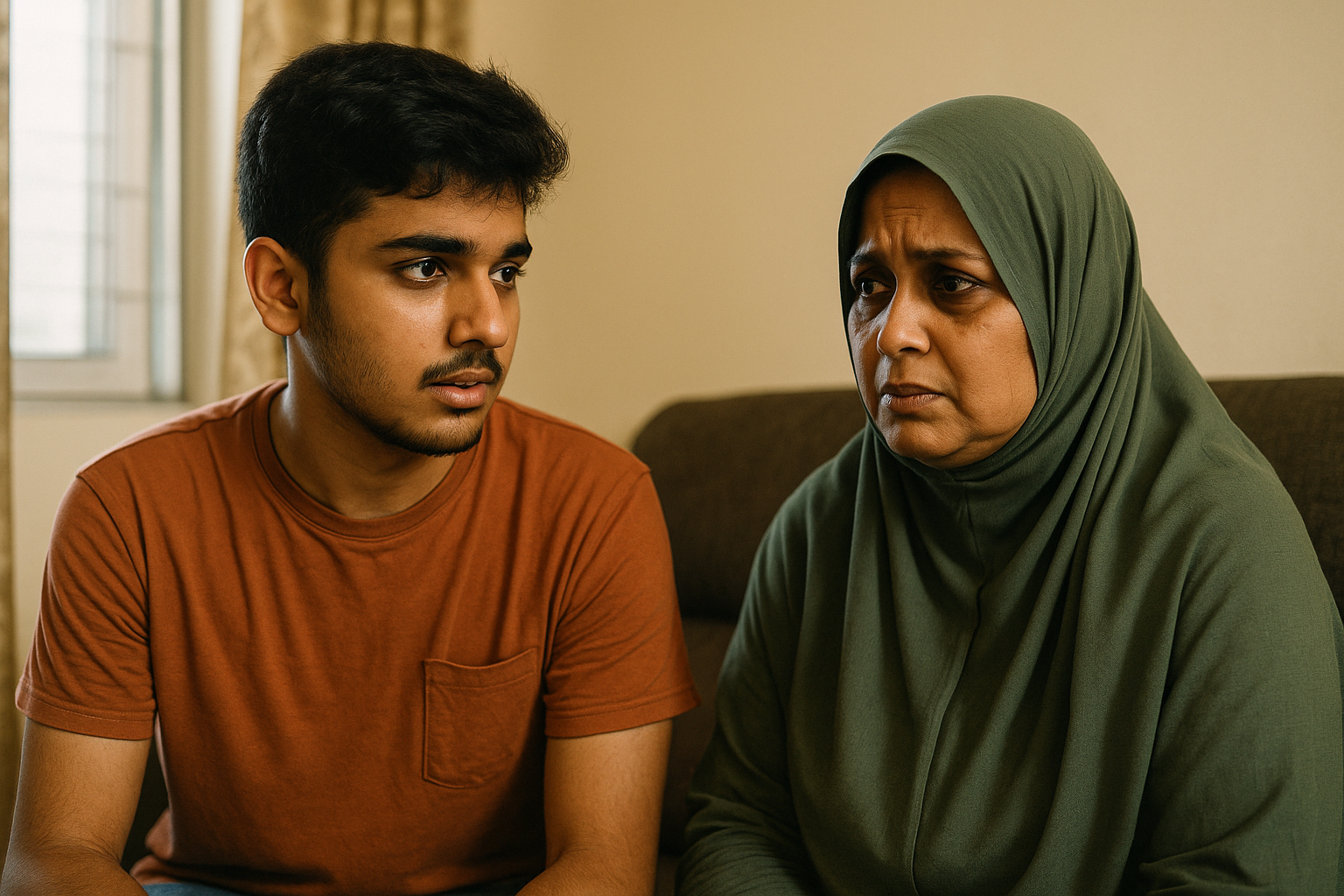Indian Student Stuck in Iran: Karnataka Family Pleads for Urgent Action Amid Escalating Tensions

In a distressing turn of events, a growing number of Indian students, primarily from Karnataka, have found themselves stranded in Iran following a major Israeli airstrike on Tehran. The incident, which occurred on June 13, has intensified the ongoing conflict between Israel and Iran and created a climate of fear and uncertainty for Indian nationals in the region. At the heart of this unfolding crisis is the alarming story of an Indian student stuck in Iran: Karnataka family pleads for immediate evacuation and support.
Indian Student Stuck in Iran: Karnataka Family Seeks Urgent Help Amid Rising Uncertainty
One such family is that of 23-year-old Fathima (name changed), a fourth-year dental student at Tehran University of Medical Sciences (TUMS). On the evening of June 16, she sent a chilling message to her 17-year-old brother Hassan Syed in Karnataka. “She said she’s safe,” Hassan shared with The News Minute, “but the uncertainty is scary.” Fathima informed her family that she had been moved from Tehran to a secret location in northern Iran. The university, she added, instructed students not to disclose their whereabouts. This is one of many harrowing examples of an Indian student stuck in Iran: Karnataka family pleads with authorities to bring their loved ones home.
Fathima is not alone. At least 15 students from Karnataka are reportedly stranded in Iran. Eleven of these students hail from Alipur village in Gauribidanur taluk, Chikkaballapur district, and four are from Bengaluru. They are enrolled at various prestigious Iranian universities, including Shaheed Beheshti University of Medical Sciences, Tehran University of Medical Sciences, Iran University of Medical Sciences, and Shiraz University of Medical Sciences.
According to Hassan, ten students are currently attending Shaheed Beheshti University in Tehran. Their names include Syed Abbas Askari, Mir Esam Raza, Syed Mohammed Taqi, Syed Jazib Ahmed, Syed Mohsin Raza, Syeda Zaineb Baqri, Nadeem Hussain, Naser Hussain, Daniya Ulfat, and Maryam Fatima. Three students — Syeda Faizi, Syeda Mufharry, and Habibe Zahra — are enrolled at TUMS, while Syeda Sohan Mehdi is a student at Iran University of Medical Sciences. Syed Abbas Yawar, who has only one exam left to complete his MBBS, is currently studying at Shiraz University of Medical Sciences.
The plight of an Indian student stuck in Iran: Karnataka family pleads is exemplified by the story of Mir Nashwan Raza from Alipur. The 17-year-old revealed that his 19-year-old brother, Esam Raza, a second-year medical student at Shaheed Beheshti University, had been relocated to Qom. “The university told them they’ll stay in Qom for two to three days. After that, if India issues an evacuation order, they will leave,” he said.
Meanwhile, in Shiraz, Syed Abbas Yawar remains in touch with his family despite mounting fears. “But there is a lot of fear among the students,” said his younger brother, Syed Ahmed Yawar. “There was an attack in Shiraz yesterday evening, and the disturbance has shaken everyone.” These accounts vividly reflect the severe anxiety surrounding every Indian student stuck in Iran: Karnataka family pleads not just for news, but for a safe and immediate return.
The Israeli strike on June 13 was one of the most significant escalations in recent years. Israel claimed the assault targeted military and nuclear facilities. Media reports suggest that several high-ranking Iranian nuclear scientists and military officials were killed. In the aftermath, many university campuses in Tehran and other major cities were emptied as students were discreetly transported to safer locations. Communication lines were intermittently disrupted, adding to the chaos and concern.
As the news spread, the affected families in Karnataka began reaching out to various authorities. Among them was the family of Nadeem Hussain in Bengaluru. His parents promptly contacted the Karnataka Non-Resident Indian (NRI) Forum for help. Dr. Aarti Krishna, the Forum’s Vice Chairperson, responded swiftly. On June 15, she sent a formal letter to the Ministry of External Affairs (MEA), urging urgent action.
“I am writing to request your help in evacuating nine Karnataka students stuck in Toufiq Alley, Zafraniya area, Tehran, Iran, who had gone there to study medicine,” Dr. Krishna’s letter stated. This urgent appeal further highlighted the dire need for intervention in cases involving any Indian student stuck in Iran: Karnataka family pleads with growing desperation.
Despite these efforts, the families remain in limbo. The students, scattered across various Iranian cities, continue to live in fear of further violence or disruptions. They are unable to return to their campuses or proceed with their academic obligations. The emotional toll on their loved ones in India is immeasurable.
“Every day without news is torture,” said one parent, whose daughter is at TUMS. “We just want her back safe. Is that too much to ask?” The haunting question encapsulates the pain experienced by those affected in this crisis, underscoring the urgency of resolving the issue of every Indian student stuck in Iran: Karnataka family pleads across the board.
This situation also brings to light broader concerns about the safety of Indian nationals in geopolitically unstable regions. The Indian government has conducted several successful evacuations in the past, including “Operation Ganga” in Ukraine and “Operation Kaveri” in Sudan. Families now urge the government to take similar decisive steps to protect Indian students in Iran.
As tensions rise between Israel and Iran, fears for the students’ safety grow. The lack of clear communication and coordinated evacuation plans only exacerbates these worries. With the crisis deepening, every hour counts. The Indian government must prioritize this issue, especially given that multiple reports and formal requests have already been made.
The situation unfolding around each Indian student stuck in Iran: Karnataka family pleads for immediate and actionable solutions that can only be provided by coordinated diplomatic and governmental efforts.
In the meantime, families across Karnataka continue to cling to hope, monitor international news, and pray for their children’s safety. Their appeal is not only a call for rescue but a plea for recognition, protection, and solidarity.
While the road ahead remains uncertain, one thing is clear: the voices from Alipur, Bengaluru, and across Karnataka must be heard. The lives of young students, the future of families, and the integrity of India’s commitment to its citizens abroad all hang in the balance.
The call for help is urgent. For every Indian student stuck in Iran: Karnataka family pleads that someone listens—and acts—before it’s too late.

One thought on “Indian Student Stuck in Iran: 15 student’s from Karnataka”
Comments are closed.